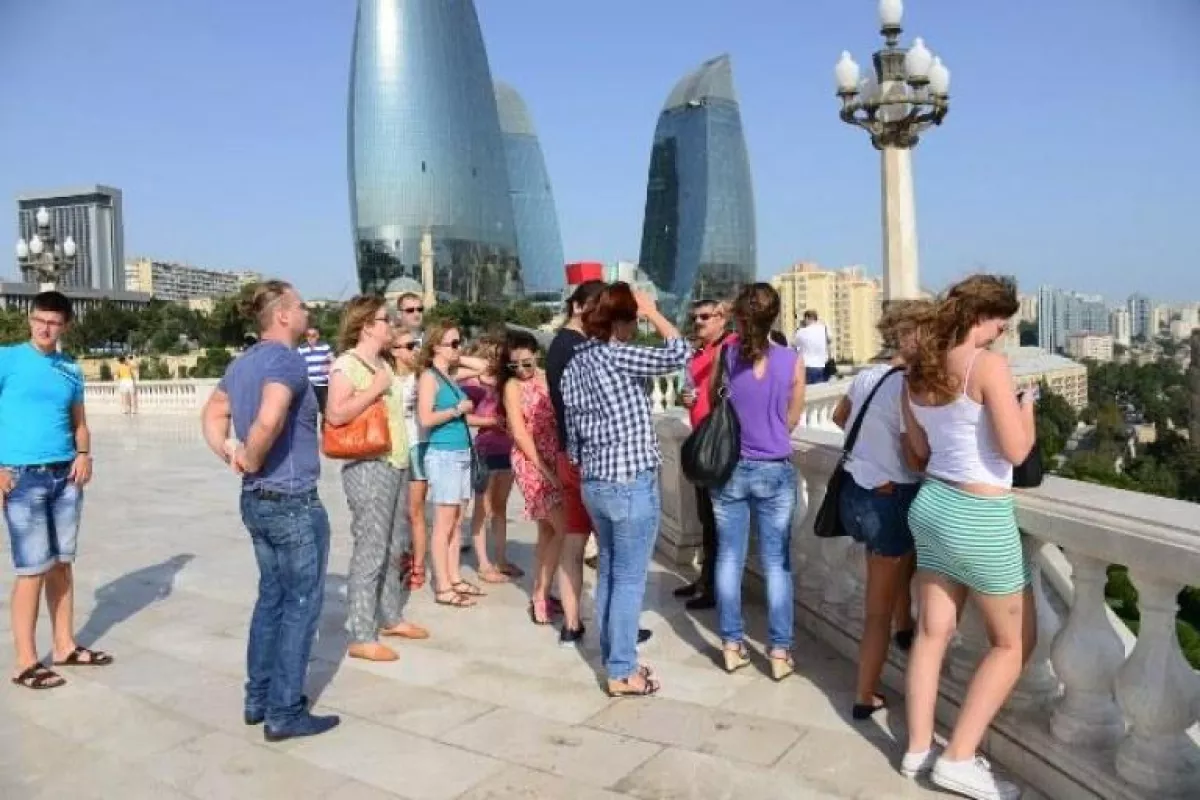UN World Tourism Organization expands cooperation with Azerbaijan Breakthrough in incoming tourism
According to a report by the United Nations World Tourism Organization (UNWTO), international tourism has fully recovered from the impacts of the COVID-19 pandemic, with a notable 11% increase in travel in 2024. Azerbaijan, in particular, has experienced significant growth in its inbound tourism, with a rise of almost 26%, more than double the global average.
UNWTO experts have consistently praised the country for successfully navigating the challenges of the sector's crisis and for its efforts to develop a partnership platform aimed at advancing the recreational industry in line with climate goals during COP29. Additionally, a recent agreement signed in Madrid will see Baku host the 71st meeting of the UNWTO Commission for Europe in June 2025.
In a recent report, UNWTO highlighted the successful recovery of the international tourism industry, which has rebounded to 99% of its pre-pandemic levels following the sector's worst crisis in history due to the coronavirus pandemic. In 2024, around 1.4 billion tourists travelled globally, marking an 11% increase—equating to 140 million more tourists compared to 2023. Global tourism revenues also saw steady growth, with an estimated $1.9 trillion spent by travellers, averaging over $1,300 per trip.
European countries experienced the strongest results, becoming the most visited region globally, with 747 million tourists, reflecting a 5% increase from 2023. The Middle East showed the highest growth compared to 2019, with 95 million arrivals, representing a 32% increase over pre-pandemic levels. Africa followed closely with 74 million arrivals, a 12% increase compared to 2023. The Caribbean and Central America have already exceeded pre-pandemic tourism levels, while the Asia-Pacific region (APR) welcomed 316 million tourists, up by 33% compared to 2023.
The UNWTO forecasts a 3-5% growth in international tourist arrivals for 2025, driven by the ongoing recovery in the tourism sector, particularly in APR countries, along with sustained growth in regions such as North and South America. However, experts have pointed out several negative factors impacting the sector, including geopolitical instability in regions like Ukraine and the Middle East, a shortage of skilled labour, rising living costs, and inflation, all contributing to higher transportation and accommodation expenses.

Azerbaijan's tourism sector, which was severely affected by the COVID-19 pandemic, began to show positive growth in inbound tourism in 2022. By 2023, the number of incoming tourists had rebounded to 65% of pre-pandemic levels. A significant breakthrough was achieved in 2024, with Azerbaijan welcoming nearly 2.627 million foreign visitors and stateless individuals from 196 countries, reflecting a 25.9% increase compared to the previous year.
The largest share of tourists came from Russia (27.8% of the total tourist flow), followed by Türkiye (16.2%) and India (9.3%). While the 2024 figures did not fully reach the record set in 2019, when Azerbaijan saw 3.2 million foreign visitors, the domestic recreational sector has managed to recover to 80% of its pre-crisis levels.
In a relatively short period, Azerbaijan has successfully developed a thriving tourism industry. The country has become a leader in the Caspian region, boasting an increasing number of five-star hotels from renowned international brands, high-end resorts, luxury restaurants, mountain and spa resorts, as well as modern airports in regional areas.
Specialists from key government bodies, such as the State Tourism Agency of Azerbaijan (STA) and the Tourism Bureau, have been actively promoting the country’s recreational offerings in the CIS countries, Europe, Asia, and the Middle East. This proactive approach has contributed to a significant increase in tourism across various destinations in recent years.
According to projections from the STA, the incoming tourist flow to Azerbaijan is expected to reach 4 million visitors in the medium term, while domestic tourism is anticipated to hit 6 million people.
The achievements and optimistic projections for the development of Azerbaijan's tourism sector have been consistently recognized by prestigious international organizations, including UNWTO experts. This positive momentum has significantly contributed to expanding the country’s cooperation in UNWTO-initiated initiatives.
A notable step forward came recently in Madrid, where an agreement was signed to host the 71st meeting of the UNWTO Commission for Europe in Baku from June 4 to 6 2025. The agreement was made during the international tourism exhibition FITUR in the Spanish capital, where a delegation from Azerbaijan is actively participating. Azerbaijan is showcasing its recreational potential at both the FITUR and IBTM World exhibitions held in Spain, using national stands to promote the country's tourism offerings to the European market.

The agreement to host the 71st meeting of the UNWTO Commission for Europe in Baku was approved by Fuad Nagiyev, the head of the State Tourism Agency, and Zurab Pololikashvili, the UNWTO Secretary-General. During the meeting, several important topics were discussed, including Azerbaijan’s candidacy for membership in the UNWTO Executive Council for the 2025-2029 term.
Other key points of discussion included joint activities under the Glasgow Declaration on Tourism Day at COP29, initiatives to expand cooperation in tourism education, and Azerbaijan's application for the "Best Tourism Village" nomination, proposed by the relevant UNWTO body.
Azerbaijan's cooperation with the UNWTO was prominently highlighted during the UN Climate Conference—COP29, which was held in Baku last November. According to UNWTO Executive Director Zorica Urošević, the tourism sector is responsible for 8.8% of global greenhouse gas emissions, including direct, indirect, and induced emissions. Given the sector's vulnerability to climate change, tourism stakeholders and international organizations are committed to adopting low-carbon and climate-resilient models that align with the UN's sustainable development goals.
In this context, the "Baku Declaration on Enhanced Climate Actions," adopted during COP29, holds particular significance as it also includes "green" initiatives for the recreational sector. A key development during COP29 was the signing of a memorandum of understanding between the UNWTO and the State Tourism Agency of Azerbaijan (STA) to implement the "Tourism Climate Action Enhancement Initiative." This document establishes a global coordination mechanism and partnership platform aimed at better integrating tourism into national climate policies and advancing the sector in line with the UN's climate goals.
COP29 made history as the first climate conference where tourism sector development was included in the UN's global climate agenda. Tourism plays a key role in ensuring peace and stability, and today the industry faces new challenges due to climate change and environmental issues, said UNWTO Secretary-General Zurab Pololikashvili not long ago.








